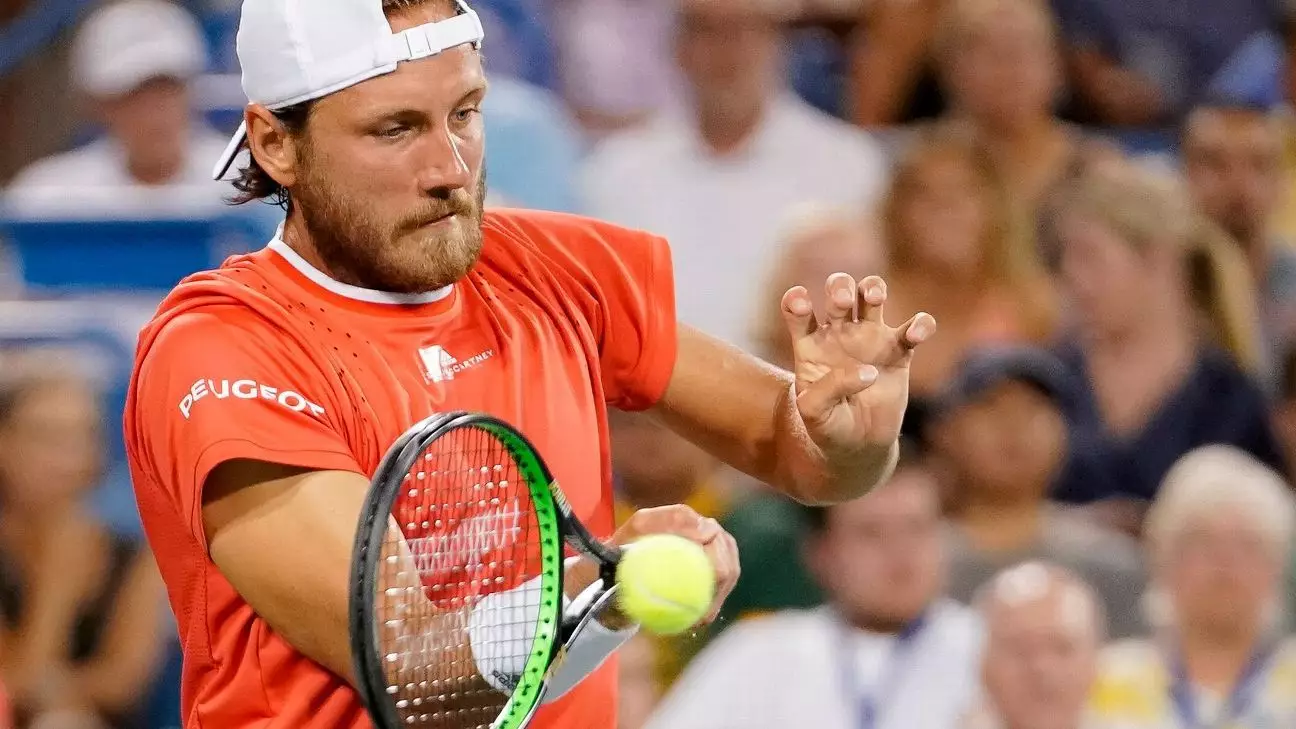Lucas Pouille, a talented tennis player from France, has found himself wrestling with the grim possibility of ending his professional career following a harrowing injury during the Challenger Tour final in Lille. This moment encapsulates the precarious nature of a sports career where a single misstep can substantially alter an athlete’s trajectory. In a tightly-contested match against rival Arthur Bouquier, Pouille’s aspirations were abruptly halted when he suffered a lower leg injury, leading him to collapse during play. The injury occurred while he was pressing forward from the baseline, and the concerning scene unfolded as he fell to the ground, clutching his right foot in visible pain.
After the match concluded, Pouille, currently ranked 102nd in the world, conveyed his deep-seated fears to the crowd. The emotional weight of his potential career-ending injury was palpable as he stated, “I think it’s total rupture of the Achilles tendon. Playing tennis at the highest level after that is complicated.” These words resonate painfully with athletes, highlighting the fragile nature of sports where risk and reward frequently coexist in a delicate balance. Ultimately, Pouille’s concerns underscore not just the physical implications of his injury but also the psychological burden that accompanies such uncertainties.
Over the years, Pouille has navigated the ups and downs that define most professional athletes’ careers. At his pinnacle in 2018, he climbed to an impressive career-high ranking of 10th in the world, achieving notable victories and reaching three finals that year. His journey through the competitive landscape of tennis also includes major milestones, such as his semifinal appearance at the 2019 Australian Open, an achievement that solidified his status as a formidable player.
However, despite his successes, injuries have frequently interrupted Pouille’s momentum. The frustration of experiencing setbacks at critical junctures has likely weighed heavily on his psyche. Just this year, he faced an early exit from the Australian Open against the eventual finalist Alexander Zverev, which raises questions about his physical resilience and adaptability in a sport that demands peak performance.
As Lucas Pouille contemplates the potentially grim outcome of his latest injury, the looming question remains: What does the future hold for this once-promising tennis star? Although he exhibits the determination typical of competitive athletes, the shadow of an Achilles tendon rupture presents a significant obstacle that could curtail his aspirations on the professional circuit.
Athletes often grapple with the notion of identity, especially when faced with the prospect of retirement due to injury. For Pouille, the struggle to accept such an outcome could be as challenging as the demands of the sport itself. As he prepares for medical evaluations that will clarify the extent of his injury, the tennis world holds its breath, hoping for a resolution that could allow him to continue his passion on the court. Whatever the final verdict may be, Pouille’s journey serves as a poignant reminder of the unpredictable nature of sports and the indomitable spirit of those who compete.

